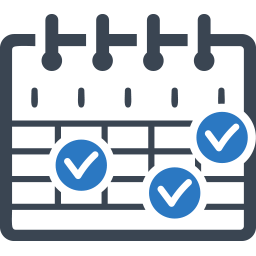
{article How Much Time Should You Spend “Studying”?}{link}{title}{/link}{/article} A lot of students try to learn English by studying the same way they studied for a test in school.
What is “studying”?
 A lot of students try to learn English by studying the same way they studied for a test in school.
A lot of students try to learn English by studying the same way they studied for a test in school.
Here’s the definition of the verb STUDY from the Merriam-Webster’s Learner’s Dictionary: to read, memorize facts, attend school, etc., in order to learn about a subject
Is that how you learned your own native language/mother tongue?
When we think of “studying,” we think of the things that we did to study for a test or pass a course. We think of forcing ourselves to sit at a desk. We think of staring at a textbook or grammar book and trying to memorize grammar rules. We think of memorizing long lists of words and trying to use them in a sentence. Studying gives us a headache.
We think it’s boring and we try to avoid it.
 Studying for an exam or to pass a course is not the same thing as learning English. Your goal now is not to memorize lots of information to pass a test, but to learn how to speak and understand English.
Studying for an exam or to pass a course is not the same thing as learning English. Your goal now is not to memorize lots of information to pass a test, but to learn how to speak and understand English.
Instead of memorizing words, learn words in the context of a sentence or paragraph and learn collacations with that word. Instead of memorizing grammar rules, learn phrases and sentence structures that are used by native speakers.
Studying is just one part of learning
Here is the definition of the verb LEARN from the Merriam-Webster’s Learner’s Dictionary: to gain knowledge or skill by studying, practicing, being taught, or experiencing something
There are many different ways to learn something. Studying is one form of learning. It’s an important part, but it’s not enough. You need to do other things to learn as well.
Think of the way you learned your native language or mother tongue. Yes, you spent some time studying your language in school. For example, you learned how to spell words and how to improve your writing. However, most of your learning came outside of school, by talking to your family & friends, reading magazines, newspapers and books, and listening to TV shows, music, etc.
Learning English should not be so boring that you don’t want to do it, or you tell yourself that you will start tomorrow, just like you are going to start your diet to lose weight tomorrow, or you will quit smoking tomorrow, … and then tomorrow never comes.
Now, let’s be honest. You do need to study. Some days, you need to sit in a chair at a table or desk and review your notes, because the more times you hear and see a word, the easier it is to remember. That’s why you need to REVIEW things.
What are some other ways of learning?
You can learn English anytime, anywhere. There are opportunities to experience and learn English all around you. Learning happens all the time, not just when you are sitting at a desk.
Whenever you do something in English, you are still learning, even if you don’t write down a word or memorize a grammar rule. You just don’t notice that you are learning!
When you listen to something in English, you are getting used to the sounds and the rhythm of English. This is important. When you read something in English, you are getting used to English sentence structure and English spelling patterns.
When you listen, you hear the same words, sentences and sounds over and over again. When you read, you see the same words, collocations and sentences over and over again. That’s how you remember things.
 • Read a book before bed, just for fun. You don’t need to write down any words or look up any words in a dictionary if you don’t want to. Just read. If you want to write down some words, pick the 3-5 most important words that you need to know to understand the story. You won’t remember anymore than that.
• Read a book before bed, just for fun. You don’t need to write down any words or look up any words in a dictionary if you don’t want to. Just read. If you want to write down some words, pick the 3-5 most important words that you need to know to understand the story. You won’t remember anymore than that.
 • Imitate what you hear. Do people speak your language with different accents? Do you make fun of people by pretending to speak your language with an accent? This is what you need to do in English. Pretend to be a native English speaker. Hear the sounds that they make. Try to make the sounds that you hear. Hear the word, don’t try to see the word.
• Imitate what you hear. Do people speak your language with different accents? Do you make fun of people by pretending to speak your language with an accent? This is what you need to do in English. Pretend to be a native English speaker. Hear the sounds that they make. Try to make the sounds that you hear. Hear the word, don’t try to see the word.
 • Watch a TV show or movie in English (with subtitles if you need to). The author of this article went to Honduras in 2005. It’s a country in Central America, south of Mexico. He went to see some ruins in Copan. The tour guide spoke English with an American accent, yet he had never travelled outside of Honduras. His native language was Spanish. He made jokes in English. He learned English from watching the Simpsons. He loved English & he loved the Simpsons, so he watched it all the time & started to imitate the sounds he heard. He learned to sound like a native speaker.
• Watch a TV show or movie in English (with subtitles if you need to). The author of this article went to Honduras in 2005. It’s a country in Central America, south of Mexico. He went to see some ruins in Copan. The tour guide spoke English with an American accent, yet he had never travelled outside of Honduras. His native language was Spanish. He made jokes in English. He learned English from watching the Simpsons. He loved English & he loved the Simpsons, so he watched it all the time & started to imitate the sounds he heard. He learned to sound like a native speaker.
 • Listen to podcasts or audiobooks. A podcast is a series of digital audio files that you can download from the internet. An audiobook is a digital recording of someone reading a book. Because both of these things are digital files, you can listen to them on your computer, tablet or mobile device.
• Listen to podcasts or audiobooks. A podcast is a series of digital audio files that you can download from the internet. An audiobook is a digital recording of someone reading a book. Because both of these things are digital files, you can listen to them on your computer, tablet or mobile device.
!An important note: Speaking to or listening to other English learners need to practice but the best results you will get speaking with native speakers and reading original books.
How much time should you spend learning English?
If you want to change and improve your English, you need to make time for English every day. Every. Day.
I do not accept the excuse that your life is so busy that you don’t have time for English. I don’t believe you. There are 24 hours in a day. I don’t believe that you can’t find 15 minutes, 30 minutes, or 1 hour during your day to do something in English. If you really want to, you can find time for English. If it’s important to you, you’ll do it.
However, you can’t do the same thing every day or you will get bored. You need to study, but you need to do far more listening and reading than you do studying.
 • Set up a schedule. Look at your week. On what days can you spend an hour doing something in English? On what days can you spend 30 minutes? When can you read a book or listen to something in English? Are there days when you are very busy and can only spend 15 minutes doing something in English? On what days can you sit down and review what you have learned?
• Set up a schedule. Look at your week. On what days can you spend an hour doing something in English? On what days can you spend 30 minutes? When can you read a book or listen to something in English? Are there days when you are very busy and can only spend 15 minutes doing something in English? On what days can you sit down and review what you have learned?
 • Review what you have learned every day. Did you hear a new word, phrase or sentence structure while you were watching a movie? Review that word or phrase.
• Review what you have learned every day. Did you hear a new word, phrase or sentence structure while you were watching a movie? Review that word or phrase.
• Don’t quit or punish yourself because you didn’t study for an hour today. One hour is better than 30 minutes, 30 minutes is better than 15 minutes, and 15 minutes is better than nothing.
• Change things often so you don’t get bored.






